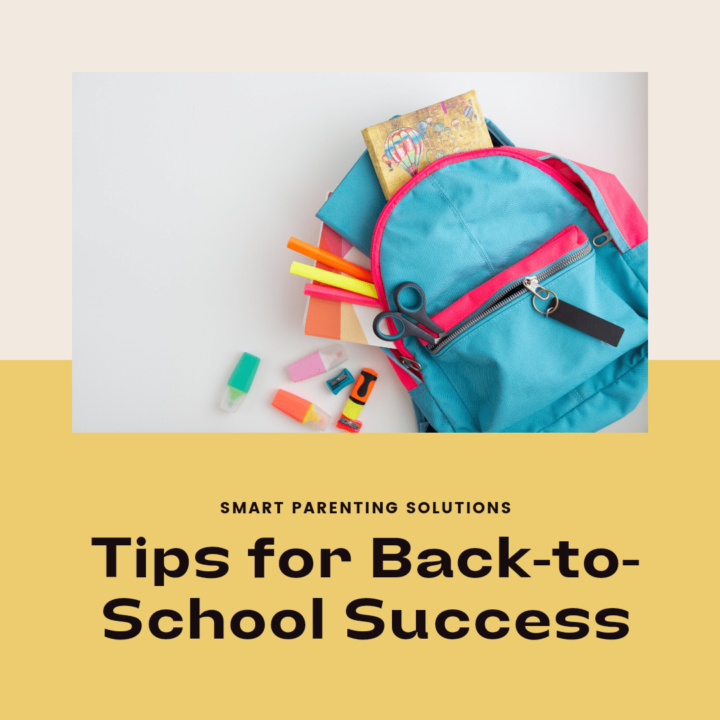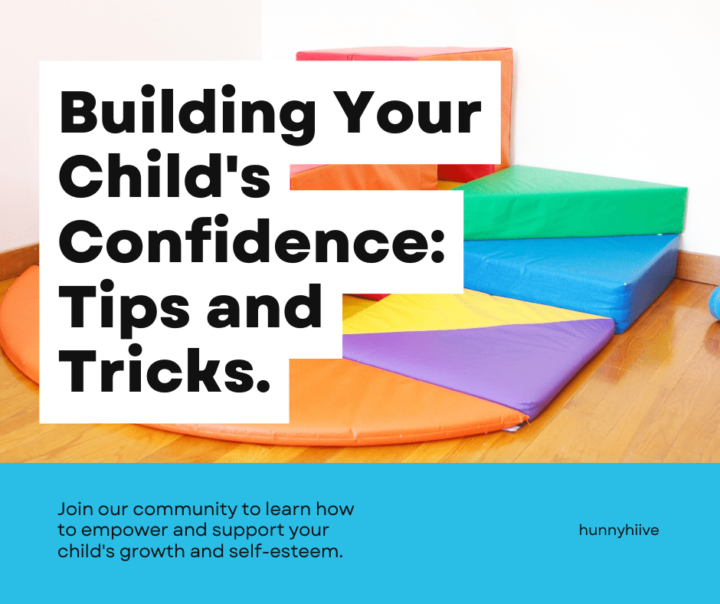
How to Navigate the Challenges of Parenting During Back-to-School Season
Navigating Back-to-School Challenges
The back-to-school season is a time filled with mixed emotions. Excitement about new beginnings is often paired with the stress of transitioning from a relaxed summer routine to a structured school year. For many parents, navigating back-to-school challenges can be particularly challenging as they juggle new schedules, academic responsibilities, and extracurricular activities. Navigating these challenges effectively requires preparation, organization, and a supportive approach. Here’s a comprehensive guide to help you manage the back-to-school season with confidence and ease.
Establish a Routine Early
One of the most effective ways to smooth the transition into the school year is to establish a consistent routine before school starts. Begin adjusting your family’s schedule a week or two before the first day of school. Gradually shift bedtimes and wake-up times to align with the school schedule, ensuring that everyone is well-rested and ready for the early mornings. This gradual adjustment helps your children adapt to the new routine without the abrupt shift that can cause additional stress.
Creating a daily routine that includes time for homework, family activities, and relaxation can also be beneficial. Incorporate activities that foster a sense of normalcy and predictability. Having a structured plan for after-school activities, meal times, and bedtime can help children feel secure and less overwhelmed by the changes.
Sources:
- Family Education: Creating a Back-to-School Routine
- Parenting: Preparing Your Child for the School Year
Organize School Supplies and Gear
Preparation is key to reducing stress during the back-to-school season. Start by making a checklist of all the school supplies your child will need. This includes notebooks, pencils, backpacks, and any other items specified by the school. Shopping for these supplies in advance ensures you have everything ready and can avoid last-minute shopping trips.
In addition to academic supplies, consider organizing your child’s school gear. Ensure that their uniforms or school clothes are clean and ready for the first day. Involve your children in organizing their supplies and selecting their outfits. This not only helps them feel prepared but also gives them a sense of ownership and excitement about the new school year.
Sources:
Communicate with Teachers
Building a positive relationship with your child’s teachers can significantly impact their school experience. Attend any parent-teacher meetings or orientations and take the opportunity to introduce yourself. If you have specific concerns or information about your child’s needs, communicate this clearly to the teacher.
Keeping open lines of communication with teachers can help you stay informed about classroom activities, expectations, and any potential issues. Regular updates from teachers allow you to support your child’s learning at home and address any challenges that may arise early on.
Sources:
- Edutopia: Tips for Building Relationships with Teachers
- Education.com: How to Communicate with Teachers
Support Emotional Adjustment
The back-to-school period can be emotionally challenging, especially for children who are transitioning to a new school, grade, or class. Be attentive to your child’s emotional needs and offer reassurance during this time. Create a safe space for them to express their feelings and anxieties about the new school year.
Encourage open conversations about their worries and provide support to help them cope with any fears or uncertainties. Positive reinforcement and encouragement can boost their confidence and help them approach the new school year with a more positive mindset.
Sources:
- American Academy of Pediatrics: Helping Children Adjust to Back-to-School
- Child Mind Institute: Managing Back-to-School Anxiety
Encourage Healthy Habits
Maintaining healthy habits is crucial for your child’s well-being and academic success. Ensure they have a balanced diet that includes fruits, vegetables, whole grains, and lean proteins. Proper nutrition supports cognitive function and overall health, which are essential for effective learning and concentration.
Hydration is also important. Encourage your child to drink plenty of water throughout the day. Adequate hydration helps maintain energy levels and focus. Additionally, ensure that your child gets regular physical activity. Exercise not only supports physical health but also helps reduce stress and improve mood.
Adequate sleep is another critical factor. Establish a consistent bedtime routine to ensure your child gets enough rest each night. Quality sleep is essential for cognitive function, mood regulation, and overall health. Aim for a sleep schedule that allows your child to wake up refreshed and ready for the day ahead.
Sources:
- HealthyChildren.org: Nutrition for Kids
- CDC: Children’s Physical Activity
- Sleep Foundation: Sleep Guidelines for Children
Manage Extracurricular Activities
Extracurricular activities can enrich your child’s school experience, but it’s important to find a balance that does not overwhelm them. Before enrolling your child in multiple activities, consider their academic workload and other commitments. Choose activities that align with their interests and passions, but ensure that their schedule allows for downtime and relaxation.
Avoid overloading their schedule with too many activities, as this can lead to burnout and negatively impact their academic performance and well-being. Encourage your child to pursue activities they enjoy but also ensure they have enough time to unwind and spend quality time with family.
Sources:
- Verywell Family: Balancing Extracurricular Activities
- The Spruce: Choosing Extracurricular Activities for Kids
Create a Homework-Friendly Space
A designated homework space can help your child focus and stay organized. Set up a quiet, well-lit area for studying and ensure it is free from distractions. Equip the space with necessary supplies, such as pencils, paper, and a computer or tablet if needed. Navigating back-to-school challenges.
Establish a regular homework routine and encourage your child to develop good study habits. Consistency in homework time helps build discipline and time management skills. Offer guidance and support when needed, but encourage independence in completing their assignments.

Sources:
Foster a Positive Attitude
Cultivating a positive attitude towards school can make a significant difference in your child’s experience. Celebrate their achievements, both big and small, and provide positive reinforcement to boost their confidence. Help them set realistic goals and acknowledge their progress towards achieving them.
Encourage a growth mindset by emphasizing the importance of effort and persistence rather than just outcomes. With navigating back-to-school challenges it’s important Reinforce the idea that challenges are opportunities for learning and growth. This approach helps build resilience and a positive outlook on academic challenges.
Sources:
- Mindset Works: Growth Mindset for Kids
- The Education Corner: Building a Positive Attitude Towards School
Conclusion
Navigating the back-to-school season requires thoughtful preparation and a supportive approach. By establishing routines, organizing supplies, communicating with teachers, and fostering healthy habits, you can make this transition smoother for your family. Supporting your child’s emotional needs, managing extracurricular activities, and creating a conducive homework environment contribute to a successful and enjoyable school year. With these strategies, you can help your child embrace the new school year with confidence and enthusiasm, setting the stage for a successful academic journey.

Sources:
The Education Corner: Building a Positive Attitude Towards School
CDC: Children’s Physical Activity
Sleep Foundation: Sleep Guidelines for Children
Verywell Family: Balancing Extracurricular Activities
The Spruce: Choosing Extracurricular Activities for Kids
Parents: Creating a Homework Space
Education.com: Setting Up a Study Space
Mindset Works: Growth Mindset for Kids
Family Education: Creating a Back-to-School Routine
Parenting: Preparing Your Child for the School Year
Good Housekeeping: Back-to-School Supplies Checklist
Parents: Organizing Your Child’s School Gear
Edutopia: Tips for Building Relationships with Teachers
Education.com: How to Communicate with Teachers
American Academy of Pediatrics: Helping Children Adjust to Back-to-School
Child Mind Institute: Managing Back-to-School Anxiety
HealthyChildren.org: Nutrition for Kids




